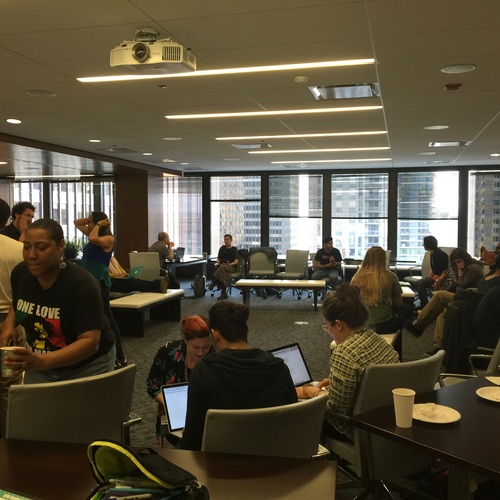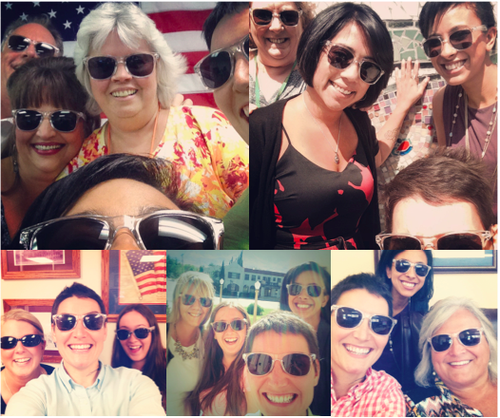Civic Engagement in Civic Tech: A Smart Chicago Collaborative Convening
On Saturday April 4, members of the CTCL team gathered at the Chicago Community Trust with a couple dozen people to talk about technology. The convening was part of the Experimental Modes of Civic Engagement in Civic Tech, a project of the Smart Chicago Collaborative led by Laurenellen McCann. Together, over the course of the day, we unpacked big questions like:
- What is civic technology?
- How do you define tech-savvy?
- What is the impact of our work?
You know, casual brunch conversation.

The group was brought together as a cohort of technologists who put people before pixels. Based on research done by Laurenellen and the Smart Chicago Collaborative, each participant approaches their work using one or more of the identified modes for building civic engagement in civic tech. The modes, or strategies, are:
- Use existing social structures
- Use existing tech structures
- Create 2-way educational environments
- Lead from shared spaces
- Distribute power
Not only was the convening a great opportunity to listen and learn about phenomenal community projects that are happening across the globe, the day was also an opportunity to reflect on and document strategies of ELECTricity’s work.
What problems are election administrators trying to solve?
We started the ELECTricity program by going on a listening tour. For eight months we didn’t build anything, we hit the road to visit local election election administrators and ask them two questions:
- What innovations are you most proud of?
- What pain points do you wish you could improve through technology or other means?
We talked with nearly 100 administrators during that time – about 70 at conferences and 20 through visits to their offices. This was one part information collection and one part relationship building, and that effort has been critical to the success of ELECTricity. We have strong advocates for our program, a network to disseminate learning and services to, and people who we can give us ongoing feedback to keep our work grounded in real needs.
What technology already exists?
One challenge that we heard over and over was difficulty communicating with voters. So, we combined our knowledge of the space with the information we learned from our meetings with local administrators and the research from the Center for Civic Design to develop the website template project. There were maybe 1 million shinier types of technology that we could have built rather than an election website template on Google blogger. But we needed to design something that tackled the communications challenge, was free or low-cost, and required a minimal amount of technical knowledge to use. We were also able to use the website training as a gateway to equip election administrators with skills like writing in plain language, a skill that can be used in any publication to help improve voter understanding and engagement. Our pilot jurisdictions have raved about their experience and the benefit of working with us. It’s been absolutely mutual.

Three key learnings:
- Build with, not for. We know that we must meet local election administrators where they are, like in their office, and acknowledge that each jurisdiction has unique challenges.
- Create a framework, or template, that can be adapted. Even though one size does not fit all, every election administrator can work with guidelines.
- Invest in people and the learning process. We know that confidence increases with meaningful, and sometimes small tech victories, like keyboard shortcuts. It’s important to move folks through points of frustration to experiences where they are curious about technology.
As we focus and refine ELECTricity services, we firmly believe technology will help us increase participation of all stripes. And most importantly, we will continue to prioritize in-person interaction and lifting up existing innovations and stories of local election administrators.
Thank you, Laurenellen and the Smart Chicago Collaborative, for leading this important research and inviting us to share ELECTricity’s work.